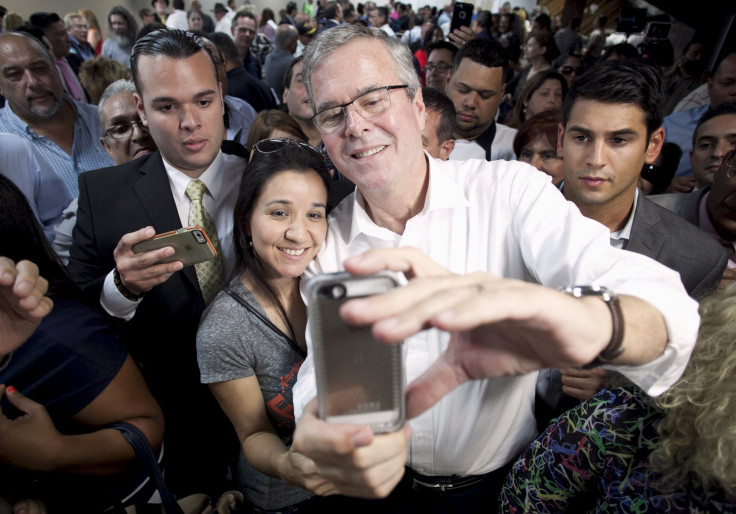Election 2016: When Will Jeb Bush, Scott Walker Announce? Will Chris Christie Even Attempt A Run?

WASHINGTON – The 2016 presidential campaign has hit prime announcement season. Three GOP hopefuls announced this week, and now-official candidate Hillary Clinton is holding campaign stops in early primary states and working the fundraising circuit. But a handful of the most well-known potential candidates -- Gov. Jeb Bush, Gov. Scott Walker and Gov. Chris Christie -- haven’t officially announced yet.
“Those are guys who already have national profiles and fundraising capability,” Mark Meckler, a tea party leader, said. “Walker and Bush are presumptive front-runners who have national names. I don’t think they are under the same kind of pressure because they’re doing a great job raising money. Christie is not in that boat. With Bush and Walker, it doesn’t hurt them not to announce. They might be strategically better off not announcing at this point. They don’t want to be part of the crowd. They want to announce at a time when they’re going to create a stir and it’s going to help them get a bump.”
The most anticipated announcement at this point is Bush's. Last year, he told reporters he would decide by the end of the year. In December, though, the former Florida governor said only that he was considering a run. He hasn't gone much further than that in the months since.
He's got no reason to hurry: Name recognition is not a problem for him. And instead of chatting with voters in small Iowa towns, he’s out raising money that will enable him to blanket the airwaves in the months leading up to the primaries. Bush opted to forgo the traditional route of launching an exploratory committee and has instead pioneered the strategy of spending his “decision time” fundraising for his super PAC, Right To Rise. While Bush hasn’t yet disclosed how much the PAC has raised, he could hit his target of $500 million before formally announcing his candidacy. That would buy him a lot of television ads for the GOP primary fight.
Walker, the governor of Wisconsin, hasn’t set a firm timeline for an announcement. In February, he said a decision would be “a ways off” and acknowledged that, like Bush, he would skip the exploratory committee stage.
He also enjoys high name recognition, building off the national profile he created when he fought the state’s public employee unions after taking office (and when those same groups tried an unsuccessful recall). Walker is pulling positive poll numbers, leading in a handful of the surveys that have been conducted in early primary states.
Christie doesn't have the luxury of waiting that long. The indictment of former members of his administration in the "Bridgegate" scandal heightened scrutiny of his gubernatorial record. Because of that scandal, his less-than-stellar economic record in New Jersey and his post-Superstorm Sandy embrace of Barack Obama (still resented by many Republicans), he’s got a big climb to win GOP primary voters. That’s going to involve spending a lot of time in New Hampshire and Iowa, where the first and second primaries, respectively, will be held.
Christie said he won’t make a decision about running for president until this summer. But speculation is growing that he may not even get into the race because of the growing troubles surrounding his candidacy. However, he didn’t show signs of giving up on a run for the White House when he addressed a group of business executives, largely defense contractors, in northern Virginia last week.
“A politician with Christie's skill and personality should never be underestimated, but it seems like most, from donors to grassroots, have ‘lost that lovin' feelin’ when it comes to the governor,” Republican strategist Joe Brettell said. “It's a bad combination of bad timing, bad luck and bad blood dating all the way back to his thinly disguised self-promotion in 2012. He may have a shot, but it's considerably more difficult.”
© Copyright IBTimes 2025. All rights reserved.






















